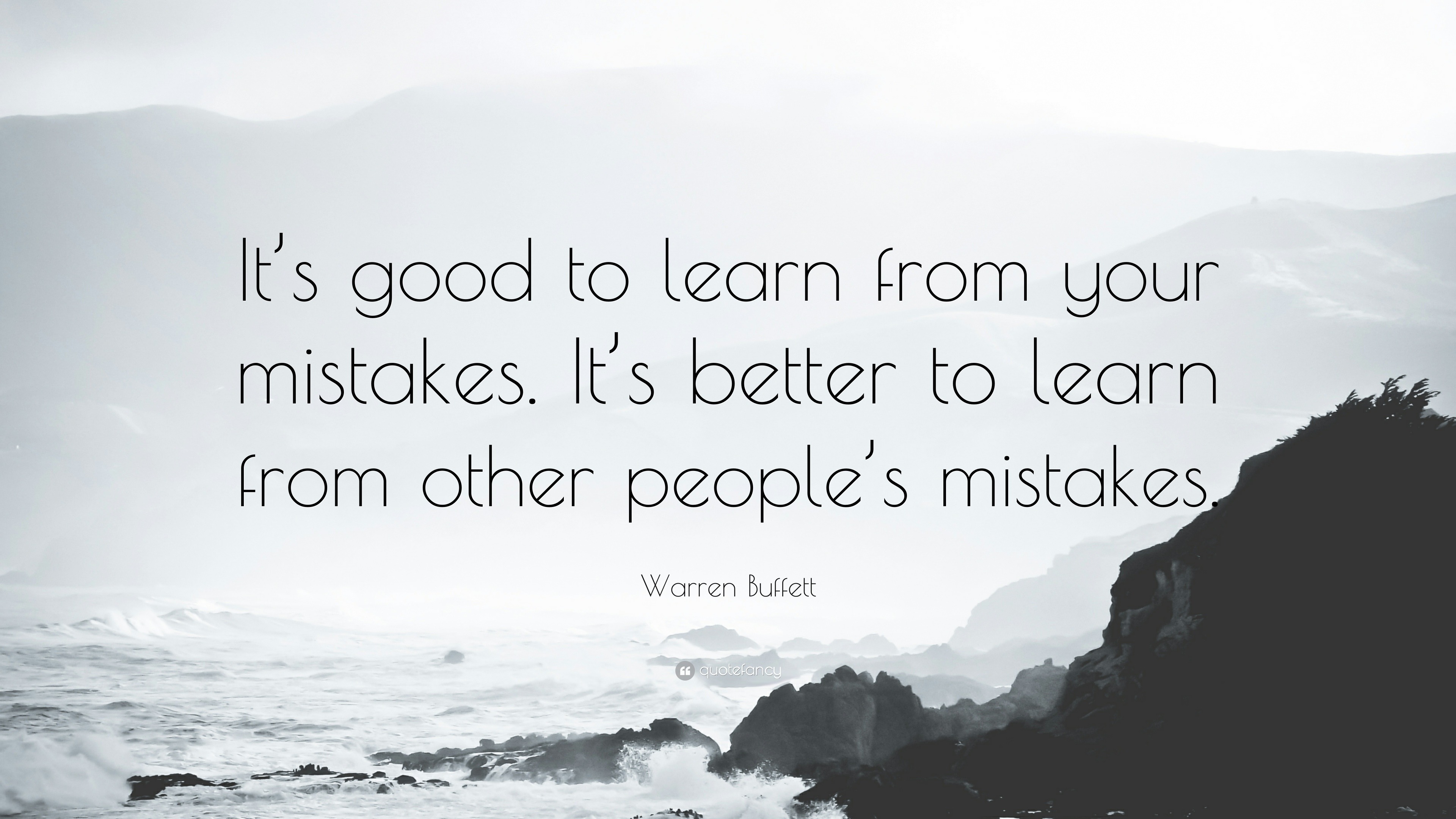The Power of Transparency: Why Sharing Your Mistakes Benefits Everyone
We’ve all been there. That sinking feeling in your stomach as you realize you’ve made a mistake. Whether it’s a miscalculated budget, a missed deadline, or a poorly worded email, errors are an unavoidable part of the human experience. But what if instead of hiding these stumbles, we embraced them? What if we shared our mistakes, not out of shame, but with the intention of helping others learn and grow? This article explores the profound benefits of sharing your mistakes and why it’s a practice that can foster a culture of growth and improvement in any environment.
The Value of Transparency: Learning from the Past
The adage “learn from your mistakes” is a cornerstone of personal and professional development. However, learning from your own mistakes can be a lengthy and often painful process. Sharing those mistakes, however, opens the door to a wealth of knowledge and accelerates the learning curve for everyone involved.
- Avoid Repeating Errors: By openly discussing mistakes, you provide a roadmap for others to navigate similar situations, potentially preventing them from making the same errors.
- Foster a Culture of Honesty: Sharing vulnerabilities builds trust and encourages others to be more open about their own challenges. This creates a more supportive and collaborative environment.
- Promote Continuous Improvement: Analyzing mistakes, both your own and those of others, allows for identifying patterns and implementing strategies to prevent similar errors in the future.
- Enhance Problem-Solving Skills: Discussing mistakes often leads to brainstorming sessions, where individuals collaboratively analyze what went wrong and develop creative solutions.
- Improve Decision-Making: By understanding the consequences of past errors, individuals can make more informed and strategic decisions in the future.
Sharing Mistakes: A Guide to Effective Communication
Sharing your mistakes isn’t just about confessing what went wrong; it’s about providing context, analysis, and actionable takeaways. Here’s how to effectively share your mistakes to maximize their learning potential:
- Be Honest and Vulnerable: Acknowledge your role in the mistake without making excuses. Transparency is key to building trust.
- Provide Context: Explain the situation, the decisions you made, and the factors that influenced your actions. This helps others understand the “why” behind the error.
- Analyze What Went Wrong: Identify the root causes of the mistake. Was it a lack of information, poor communication, or a flawed process?
- Share the Impact: Explain the consequences of the mistake. This helps others understand the potential ramifications of similar errors.
- Offer Solutions and Lessons Learned: What did you learn from the experience? What steps will you take to prevent similar mistakes in the future?
- Focus on the Future: Frame the discussion around learning and improvement, rather than dwelling on blame.
The Benefits Extend Beyond the Individual
The practice of sharing mistakes creates a ripple effect, benefiting not only the individual who made the mistake but also the team, organization, and even the wider community.
- Improved Team Performance: When teams openly discuss mistakes, they learn from each other, leading to improved collaboration and efficiency.
- Increased Innovation: A culture that embraces mistakes encourages risk-taking and experimentation, which are essential for innovation.
- Stronger Organizational Culture: By normalizing mistakes, organizations can foster a more supportive and resilient culture, where individuals feel safe to take risks and learn from their experiences.
- Enhanced Reputation: Organizations that are transparent about their mistakes often gain the respect of their customers and stakeholders.
Overcoming the Stigma: Embracing a Growth Mindset
One of the biggest obstacles to sharing mistakes is the fear of judgment or negative consequences. To overcome this, it’s crucial to cultivate a growth mindset – the belief that abilities and intelligence can be developed through dedication and hard work.
- Lead by Example: Managers and leaders should be the first to share their own mistakes, demonstrating that vulnerability is a sign of strength.
- Create a Safe Environment: Foster a culture where individuals feel comfortable admitting mistakes without fear of retribution.
- Focus on Learning, Not Blame: Frame discussions about mistakes as opportunities for learning and improvement, rather than opportunities for punishment.
- Recognize and Reward Learning: Acknowledge and celebrate individuals who share their mistakes and demonstrate a willingness to learn and grow.
Conclusion: The Transformative Power of Shared Mistakes
Sharing your mistakes is not a sign of weakness; it’s a sign of strength, courage, and a commitment to continuous improvement. By embracing transparency and openness, we can create environments where learning thrives, innovation flourishes, and individuals and organizations reach their full potential. The simple act of sharing your mistakes can have a profound impact on the lives of others and contribute to a more resilient and successful future.
FAQs:
1. Why is it so difficult to share mistakes?
The fear of judgment, criticism, or negative consequences often prevents individuals from sharing their mistakes. Cultural norms that emphasize perfectionism and blame can also contribute to this reluctance.
2. How can I encourage others to share their mistakes?
Lead by example, create a safe and supportive environment, focus on learning rather than blame, and reward individuals who share their mistakes and demonstrate a willingness to learn.
3. What are the potential downsides of sharing mistakes?
If not handled correctly, sharing mistakes can sometimes lead to negative consequences, such as reputational damage or a loss of trust. However, these risks can be mitigated by focusing on learning and improvement, providing context, and avoiding blaming others.
4. How can I protect myself when sharing a mistake with my boss?
Focus on the facts and provide context. Be clear about what happened and the steps you’ll take to avoid it in the future. Frame the discussion around learning and improvement, rather than dwelling on blame. If you are concerned, consider having a trusted colleague present during the discussion.
5. What’s the difference between admitting a mistake and making an excuse?
Admitting a mistake involves taking responsibility for your actions and acknowledging the error. Making an excuse involves shifting blame or attempting to justify your actions. Focusing on the error, what you have learned from it, and how it can be avoided in the future is key.




